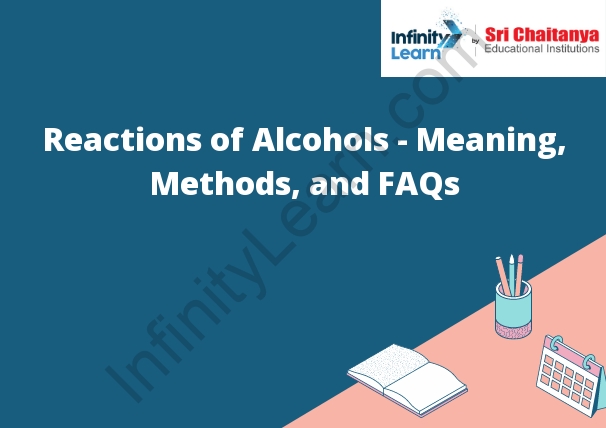Table of Contents
What are Alcohols? ;
Alcohols are a class of organic molecules that contain the C-OH functional group. The simplest alcohol is ethanol, which is widely used as a solvent and as a fuel. Other important alcohols include methanol and propanol.

Methods of Formation of Alcohol
There are three methods of formation of alcohols:
1. By the hydration of alkenes: In this process, an alkene reacts with water to form an alcohol. The reaction is catalyzed by a strong acid, such as sulfuric acid.
2. By the oxidation of aldehydes or ketones: In this process, aldehydes or ketones are oxidized to form alcohols. The reaction is catalyzed by a strong acid, such as sulfuric acid.
3. By the reduction of esters: In this process, esters are reduced to form alcohols. The reaction is catalyzed by a strong acid, such as sulfuric acid.
Chemical Reaction of Alcohol
When alcohol is burned in air, it undergoes a combustion reaction and produces carbon dioxide and water vapor.
Ethanol Reaction
The ethanol reaction is a chemical reaction that produces ethanol, or ethyl alcohol, from a variety of starting materials. The reaction can be used to produce ethanol from renewable resources, such as corn or sugarcane, or from non-renewable resources, such as petroleum. The reaction is initiated by the addition of an enzyme, called yeast, to a mixture of sugar and water. The yeast converts the sugar into ethanol and carbon dioxide. The ethanol is then collected and purified.






